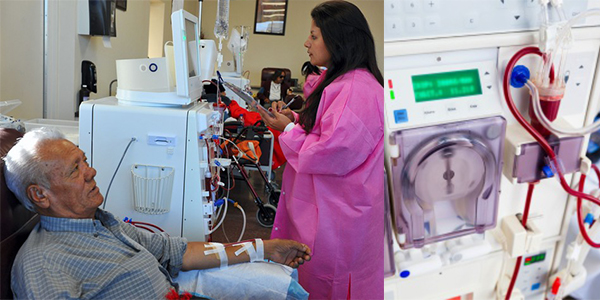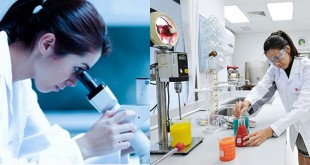Paramedical in Dialysis Technology
Dialysis technology students learn how to help patients with kidney failure by performing dialysis, a procedure in which a machine does the blood purification work of the kidney. In addition to such health care basics as anatomy, physiology, sanitation, and ethics, students learn how to understand dialysis prescriptions, prepare patients, set up equipment, and more.
Dialysis technology is a highly specialized field of nephrology (care of the kidneys). In clinical practice settings dialysis technologists provide dialysis treatment under the supervision of a physician or registered nurse. The dialysis technologist is responsible for all medical devices and equipment involved in renal replacement therapies, such as reprocessing and water treatment equipment. Along with patient care and equipment operation, maintenance, and repair, dialysis technologists act to ensure regulatory compliance.
Dialysis technologists also are responsible for ensuring the proper functioning of dialysis machines; in some settings they perform routine equipment maintenance and repairs. Dialysis technologists are often involved in patient education, instructing patients and families about in-home dialysis treatment and reinforcing the importance of adherence to prescribed treatment.
Dialysis is a medical procedure which is used to replicate the filtering process of the kidneys in patients with limited or no kidney function. In recent years the technology and techniques in the dialysis process have evolved a great deal, opening many new options for those who require frequent dialysis procedures.
Nature of Job:
Dialysis technologists may work in hospitals, outpatient clinics, or freestanding dialysis centers. Work environments must be scrupulously clean and well maintained to prevent infection of patients and health care workers. In the work setting, there must be strict adherence to safety standards since dialysis technologists routinely handle dangerous chemicals during the course of performing their responsibilities.
Syllabus:
The areas of study addressed during course work may include:
- hazard communications and safety.
- specific risks of per-acetic acid solution.
- prevention of occupational injuries.
- power failure/manual dialysis.
- managing chemical agents and chemical emergencies.
- water safety, testing, treatment.
- monitoring dialysis patients.
- dialysis process.
- pathos physiology of kidney and urinary system.
- hypo / hyperkalemia.
- machine preparation and operation.
- medication, documentation, and quality assurance.
Eligibility & Admission:
Pass in Higher Secondary Examination or equivalent thereto with 40% marks in Physics ,Chemistry and Biology put together, are eligible .Relaxation of 5% marks will be allowed to SC/ST candidates.
Candidate shall be between the age group of 17-35 yrs.
Higher Studies:
Dialysis technologists can advance from trainee positions to chief technologist posts at major medical centers. Some dialysis technologists participate in clinical research and teaching. Others work closely with bio-medical engineers to improve hydraulic and electrical systems used in dialysis equipment. Some medical facilities encourage dialysis technologists to continue their education and advance to become licensed vocational nurses, registered nurses, or other specialized health care therapists or practitioners.
Job prospects:
The employment prospects for dialysis technologists are excellent. The number of patients on dialysis continues to increase, and the average duration (the length of time patients remain on dialysis) is also increasing. Advances in medical technology, the increasing prevalence of end stage renal disease (E S RD), and the aging population all point to an increasing need for renal care practitioners, especially dialysis workers.
Employers:
Dialysis technologists may work in hospitals, outpatient clinics, or freestanding dialysis centers. Work environments must be scrupulously clean and well maintained to prevent infection of patients and health care workers. In the work setting, there must be strict adherence to safety standards since dialysis technologists routinely handle dangerous chemicals during the course of performing their responsibilities.
 Courses and Colleges after 10th After 10th, What Next?
Courses and Colleges after 10th After 10th, What Next?








